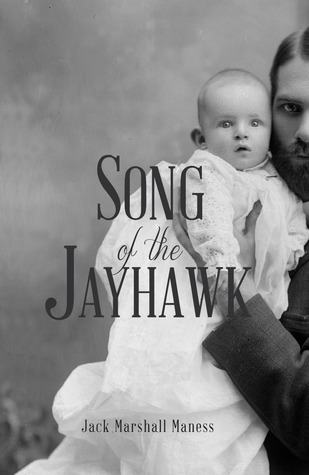Before there were red states and blue states, there was Kansas. A place that divided the nation like never before, or since. A place where mayors were generals and journalists were terrorists. A place where drunken guerrilla armies roamed the prairies, threatening farmers and rigging elections. A haunted place where mysterious beasts led settlers into undiscovered countries.
Follow two young families as they struggle with rattlesnakes, tornadoes, ice-storms, childbirth and morality in a war-torn land. A growing love between them, built over holiday ham and whiskey, is threatened as they are drawn into the territory's cycle of political violence. They must ultimately decide if they are friends or foes, and it isn't long before they all have blood on their hands.
This is a story of loyalty and betrayal, courage and despair. Set in the 1850s, the dilemmas faced by the Dugan and Hawkins families are similar to those faced by every generation in a long-divided America. It asks how ordinary people cope with extraordinary times, why they sometimes turn to violence, and more importantly, why they usually do not.
Follow two young families as they struggle with rattlesnakes, tornadoes, ice-storms, childbirth and morality in a war-torn land. A growing love between them, built over holiday ham and whiskey, is threatened as they are drawn into the territory's cycle of political violence. They must ultimately decide if they are friends or foes, and it isn't long before they all have blood on their hands.
This is a story of loyalty and betrayal, courage and despair. Set in the 1850s, the dilemmas faced by the Dugan and Hawkins families are similar to those faced by every generation in a long-divided America. It asks how ordinary people cope with extraordinary times, why they sometimes turn to violence, and more importantly, why they usually do not.
Goodreads description
I have to confess that, although I studied history at university, I know precious little about America in the 19th century and the run-up to the American Civil War. I therefore came to this novel with a great deal of ignorance and had no idea what a catalyst Kansas was in the tragic turmoil that hit that great country.
The book's introduction starts with the statement It has been widely noted that one cannot comprehend American society without a fundamental understanding of the Civil War. But can you enjoy a story set in that time without such an understanding? The answer is yes, I did enjoy The Song of the Jayhawk. I found myself emotionally involved with the Dugan and Hawkins families. Jack Marshall Maness, to his great credit, shows accurately the complexity and ambiguity of real people facing difficult choices. To fight or not, to protect family or the wider community, to help or to fight your neighbours. He shows that both families have come from difficult backgrounds and want to build a new future and he also shows that within families there are clashes between younger hot-headed members and their more experienced pragmatic elders.
Whilst the point of view of the novel stayed with the various family members, this reader was engaged with the story. However when on occasion the narrative parted from that point of view and showed political developments on the wider stage, I found myself feeling frustrated. From what I have read in the introduction to the book Mr Maness is a historian and I sympathize with his desire to clearly set his protagonists' story in its historic context, but...
The magic realism in the book comes mainly in the form of the appearance of a mythical bird of the Kanza Indians, the Mialueka, which the author associates with the infamous Kansas jayhawk. The Mialueka was said to have lured people to their destruction, and appears at times of crisis to the Dugan brothers. Other magic-realist elements include the river changing location and some magic powers belonging to Patrick Dugan's wife. The latter are not fully developed narratively, although I expect they will be in subsequent books. It should be noted that the story does rather break off at the end of the book, as this is the first in a series, so if you are someone who likes everything resolved when you read the last page, be warned.
I received this book free from the author in return for a fair review.

No comments:
Post a Comment